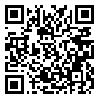Volume 5, Issue 2 (8-2022)
Iran J Health Insur 2022, 5(2): 129-142 |
Back to browse issues page
Download citation:
BibTeX | RIS | EndNote | Medlars | ProCite | Reference Manager | RefWorks
Send citation to:



BibTeX | RIS | EndNote | Medlars | ProCite | Reference Manager | RefWorks
Send citation to:
Pakniyat Rad M, Tajeddin M, Habibpour Gatabi K. Developing a Policymaking Model for Empowering the Insured of the Iran Health Insurance Organization. Iran J Health Insur 2022; 5 (2) :129-142
URL: http://journal.ihio.gov.ir/article-1-235-en.html
URL: http://journal.ihio.gov.ir/article-1-235-en.html
Developing a Policymaking Model for Empowering the Insured of the Iran Health Insurance Organization
1- Department of Social Sciences, Faculty of Social Sciences, Central Tehran Branch, Islamic Azad University, Tehran, Iran
2- Department of Social Sciences, Faculty of Social Sciences, Central Tehran Branch, Islamic Azad University, Tehran, Iran , Mb_tajeddin@yahoo.com
3- Department of Sociology, Faculty of Human Sciences, Kharazmi University, Tehran, Iran
2- Department of Social Sciences, Faculty of Social Sciences, Central Tehran Branch, Islamic Azad University, Tehran, Iran , Mb_tajeddin@yahoo.com
3- Department of Sociology, Faculty of Human Sciences, Kharazmi University, Tehran, Iran
Abstract: (4035 Views)
Introduction: The present study seeks to design a health insurance empowerment model so that the insured can achieve an acceptable level of capabilities. The reason for choosing this group of insured persons is their large and considerable population in the country, which now include about 50% of Iran’s population.
Methods: The methodological approach of this research is qualitative and based of the grounded theory, deep and semi-structured interview data retrieval techniques. For data mining, the theoretical coding method was used, which aims to achieve the main and secondary categories in line with the theoretical model setting. The sample number is 15 health insurance experts who were selected purposefully.
Results: The results show that the central phenomenon is community-oriented empowerment, which is based on causal conditions, contextual conditions, intervening conditions and strategies. The most important strategies are the right of the insured to access insurance services and opportunities. In the discussion of background conditions, important elements such as agency, sense of equality and inclusion (integration) and capacity building are emphasized. Also, the findings show that components such as maintaining the rights of the insured, enabling resources and the efficiency and quality of insurance services are considered as causal conditions.
Conclusion: According to the findings of the present study, three main categories of education and information, social participation and social support have been proposed as intervening conditions. Completing the chain of the paradigm model of the present study is based on the data theory method of the Consequences Foundation, which analysed the empowerment in four main sections of social empowerment, cultural empowerment, economic empowerment and psychological empowerment of the insured.
Methods: The methodological approach of this research is qualitative and based of the grounded theory, deep and semi-structured interview data retrieval techniques. For data mining, the theoretical coding method was used, which aims to achieve the main and secondary categories in line with the theoretical model setting. The sample number is 15 health insurance experts who were selected purposefully.
Results: The results show that the central phenomenon is community-oriented empowerment, which is based on causal conditions, contextual conditions, intervening conditions and strategies. The most important strategies are the right of the insured to access insurance services and opportunities. In the discussion of background conditions, important elements such as agency, sense of equality and inclusion (integration) and capacity building are emphasized. Also, the findings show that components such as maintaining the rights of the insured, enabling resources and the efficiency and quality of insurance services are considered as causal conditions.
Conclusion: According to the findings of the present study, three main categories of education and information, social participation and social support have been proposed as intervening conditions. Completing the chain of the paradigm model of the present study is based on the data theory method of the Consequences Foundation, which analysed the empowerment in four main sections of social empowerment, cultural empowerment, economic empowerment and psychological empowerment of the insured.
Keywords: Community-Oriented Empowerment, Social Empowerment, Psychological Empowerment, Cultural Empowerment, Economic Empowerment, Health Insurance
Type of Study: Research |
Subject:
Special
Received: 2022/05/2 | Revised: 2022/10/19 | Accepted: 2022/07/25 | ePublished: 2022/10/8
Received: 2022/05/2 | Revised: 2022/10/19 | Accepted: 2022/07/25 | ePublished: 2022/10/8
Send email to the article author
| Rights and permissions | |
 |
This work is licensed under a Creative Commons Attribution-NonCommercial 4.0 International License. |






